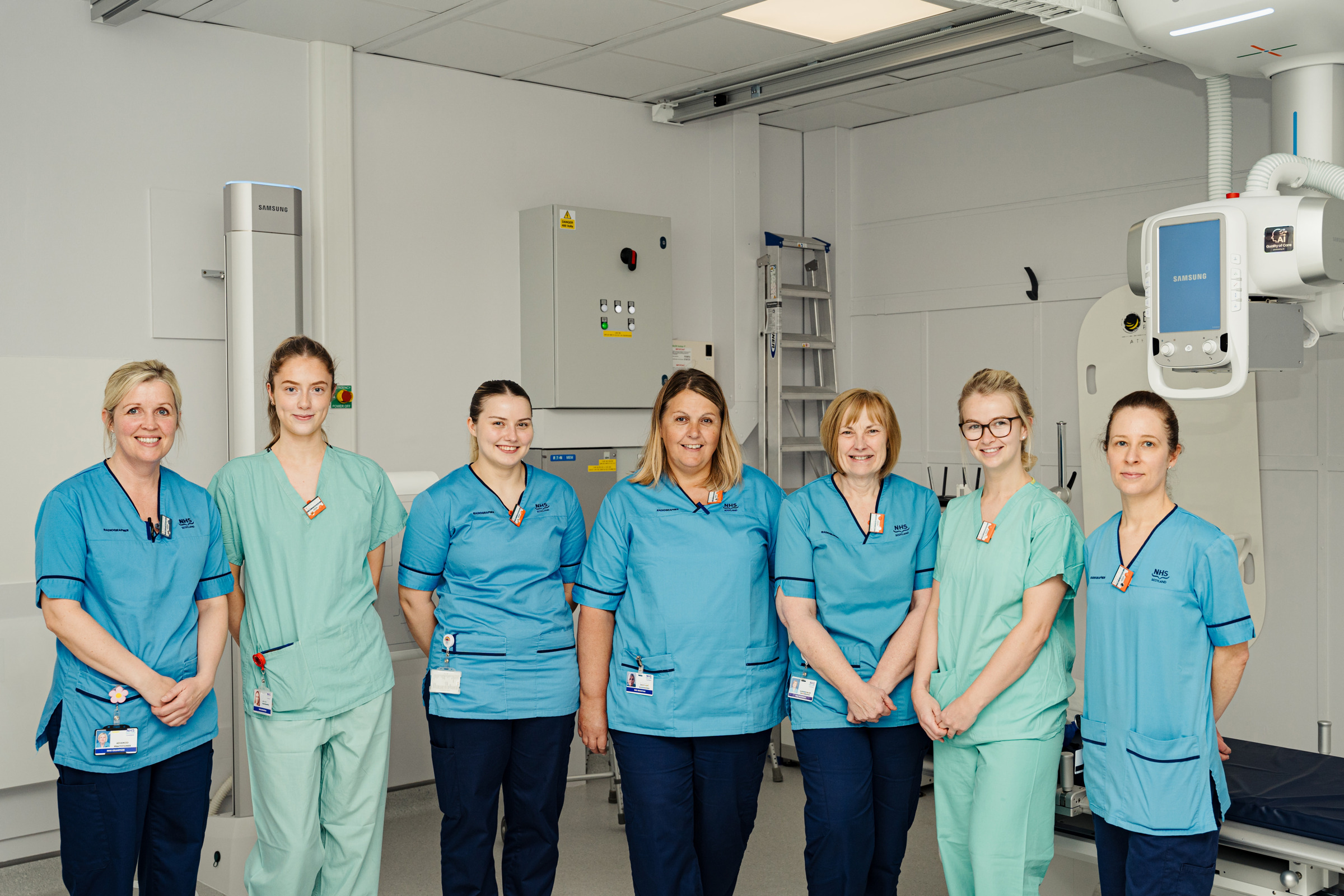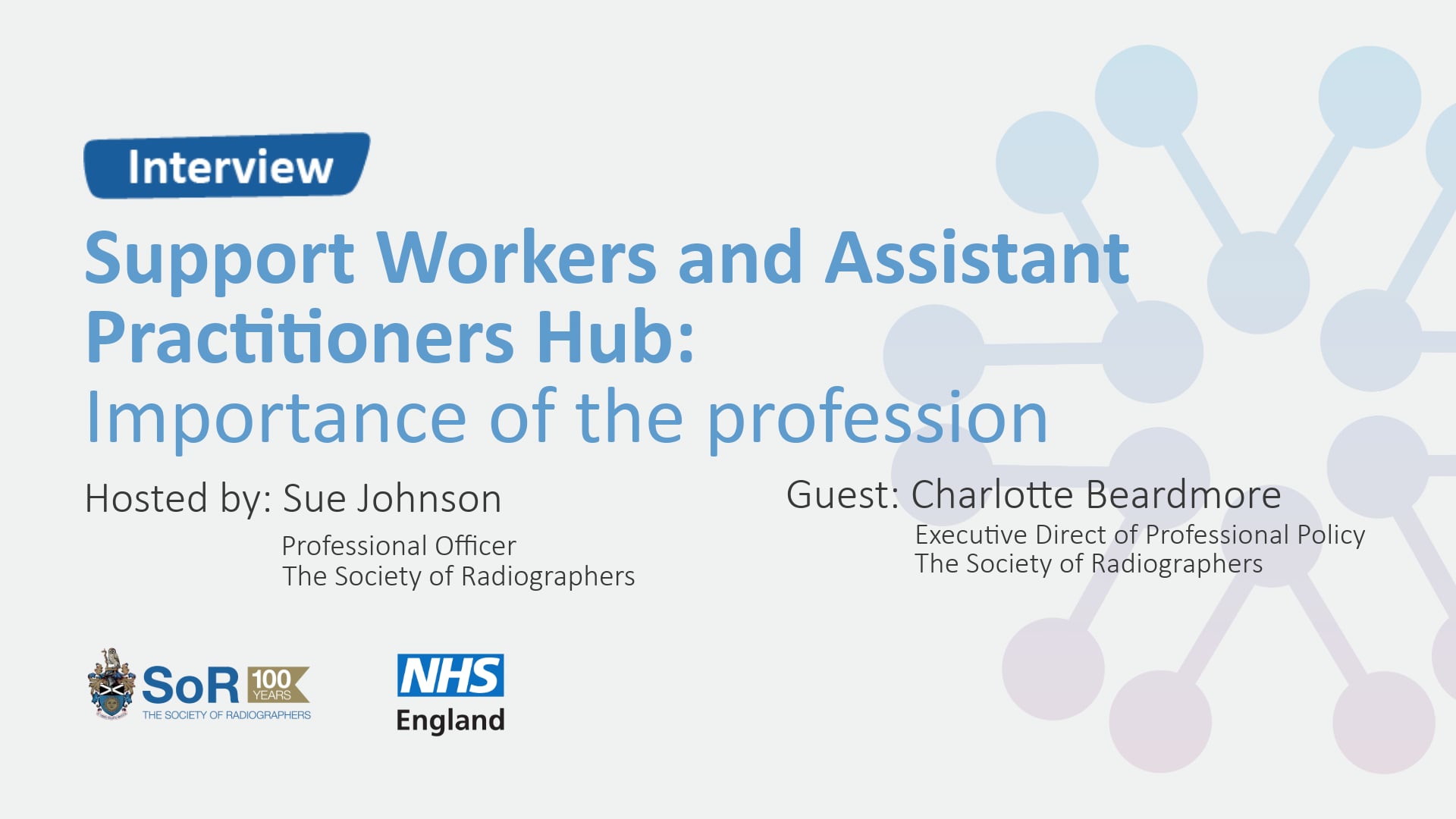SoR Support Worker and Assistant Practitioner (SWAP) Resource Hub
Your one-stop shop for accessible training and educational resources
Support workers can join the SoR - don't miss out!

Your one-stop shop for accessible training and educational resources
Support workers can join the SoR - don't miss out!

At the Society of Radiographers (SoR), we recognise the vital contribution of the supportive and assistive workforce within clinical imaging. To empower and inspire this workforce, we’ve developed a comprehensive hub packed with resources to support your learning, enhance your knowledge, and celebrate the incredible work being done in this brilliant specialty.
This hub is designed specifically for:
 Aberdeen Royal Infirmary staff
Aberdeen Royal Infirmary staff
Clinical support workers
Senior clinical support workers
Mammography associates
Trainee mammography associates
Assistant practitioners
Trainee assistant practitioners
Managers
These roles are essential to the delivery of high-quality imaging services, ensuring patients receive safe and effective care. This hub provides resources to support your ongoing learning and professional development within imaging, enhancing your knowledge of regulatory compliance, quality assurance, and the technical skills needed in your field.
The information and resources available within this hub aim to deepen your understanding, strengthen your skills, and continue making valuable contributions to the imaging team.

Sue Johnson interviews Charlotte Beardmore about the significance of the support workforce in radiography, and how this new hub was created to support with it's development.
Discussing the role of professional bodies, the importance of resources, and the evolving scope of practice for support workers.
The conversation emphasizes the need for investment in education, and the continuous development of the workforce to improve patient care.
Click on the buttons below to be taken to the designated section of the SWAP Hub.
Each section includes a button beneath the page title that will allow you to return to this homepage if you wish to come back.
Work in progress - further content to be added!
Work in progress - further content to be added!
There's a large array of resources available through this hub. From a library of documents provided from researchers, active practitioners, and respected publishers, to podcasts and video interviews.
Feel free to explore our document library for any documentation that covers the various areas of the hub.


A library of video and audio interviews with assistant practitioners, researchers, managers and more.
Access here
e-LfH was formed to deliver a range of programmes and is now in the process of delivering/developing overr 400 programmes across the UK.
Learn more
A platform for learning and sharing resources. Providing easy access to a wide range of educational resources, elearning, specialist health and care content and more.
Learn more
This framework enables employers, networks, integrated care systems (ICSs) and services effectively plan, develop, and deploy their AHP support workforce.
Explore framework
This project, led by researchers from Sheffield Hallam University, investigated the utilisation and deployment of imaging support workers and assistant practitioners (I-SWAP)
Explore projectWe are committed to continuously improving this hub and value your feedback.
Please take a moment to complete our survey and share your thoughts. Furthermore, if you have any research, documents, or note worthy advice that you think can support a student or radiographer on their career path, then please get in touch if you are willing to share and have it displayed within this hub.

Have you got some research, documents or any advice that you think could support someone's radiography journey? Get in touch, we'd love to display it here!
Share your work
Your feedback will help us refine and expand this hub, ensuring it meets your needs and supports your professional growth. Join us in advancing the capabilities of the clinical imaging workforce.
Share your feedback
We'd love to connect with people within the workforce who share the passion for the profession. Not a support worker, but still want to get involved? Drop us a message using one of the links above.
Connect with the SWSIG
Become a member to access extra resources you won't get anywhere else, expert support and a vibrant professional network – start your journey today.
Join the SoR